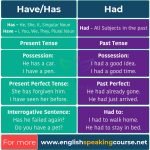
Speak English fluently using was and were
The post is about How to use was and were information but also try to cover the following subject:
– How to make WH-Questions?
– Basic English grammar
– Past Continuous Tense
Today we will learn the use of was and were. If you want to speak English, you have to learn the use of was and were very well. Then you can speak English fluently. Today I will teach you how to use them very easily. I hope after today it will never be wrong to use them again.
Was and were used in Past Tense. Or ‘was, were’ is used to explain past events.
Was – is used with I, he, she, it, John (any name)
Were –used with we, they, you, (Plural subject)
You – ‘Were’ always sits with ‘you’. Although ‘You’ is Singular Number.
In a word, they are called Be Verb. It is also called Helping Verb. Was were used as a helping verb. Sometimes they are used as Main Verb.
If ‘Was were’ is used in a sentence, then the sentence should be taken as Past Indefinite Tense. And if ‘ing‘ is added to the verb which means Was / were + Verb + ing then it will be Past Continuous Tense.
How to use was and were correctly?
S + Was/were + O
For example –
He was sick.
If I say –
He was not sick.
Using ‘not’ here makes this sentence a Negative Sentence. If you want to make a Negative Sentence then the sentence structure will be-
S + Was/were + not + O
This means you have to put ‘not’ after Was / were.
For example –
They were not happy.
Daily use Sentences with Was and were
- I was tired.
- I was wrong.
- He was alone.
- He was brave.
- It was night.
- I was at home.
- He was patient.
- I was a teacher.
- He was very happy.
- We were all tired.
- There were two cakes.
- All of us were silent.
- They were very excited.
- Forty people were present.
- There were ten eggs in all.
- We were very busy last week.
- All our efforts were in vain.
Questions with was and were
How to make Interrogative Sentence?
When we make an Interrogative Sentence, we will place the Be Verb before the subject and the Interrogative sign at the end.
Was/were + S + O + ?
For example –
Was I wrong?
Let’s see more examples –
- Was the movie good?
- Was the book interesting?
- Was he at home yesterday?
- Was there a lot of traffic?
- Were you busy yesterday?
- Were you out last night?
- Were you at home yesterday?
- Were you at school at that time?
- Were you playing cricket yesterday?
WH-Questions with was and were
If you have to use Wh-Word in a sentence, then the sentence structure will be like this:
Wh-Word + was/were + S + O + ?
For example –
- How was your day?
- When was she born?
- Where was John born?
- How was your summer?
- What was that noise?
- How was today’s game?
- How was your weekend?
- How was the math test?
- How was your afternoon?
- Who was the book written by?
- What was served at the party?
- When was the last time we met?
- What was it that you gave him?
- Where were you going?
- Why were you absent yesterday?
- What were you doing there?
- Why were you late this morning?
- Why were you absent from school yesterday?
Was and Were in Past Continuous Tense
Past continuous Tense is used when something was happening or was going on for a while in the past.
Sentence Structure: Subject is followed by was or were according to person and number and ‘ing’ is added at the end of the main verb.
Subject + was/were + main verb + ing + O
- He was standing.
- She was making tea.
- It was getting dark.
- He was cleaning his room.
- He was playing the piano.
- I was eating dinner then.
- He was listening to music.
- He was sitting on a bench.
- It was really interesting.
- He was reading a newspaper.
- The dog was digging a hole.
- He was standing at the door.
- They were lying on the grass.
- They were fighting on the street.
- You were talking in your sleep last night.
- They were watching television.
- Where were you going?
- Why were you late this morning?




